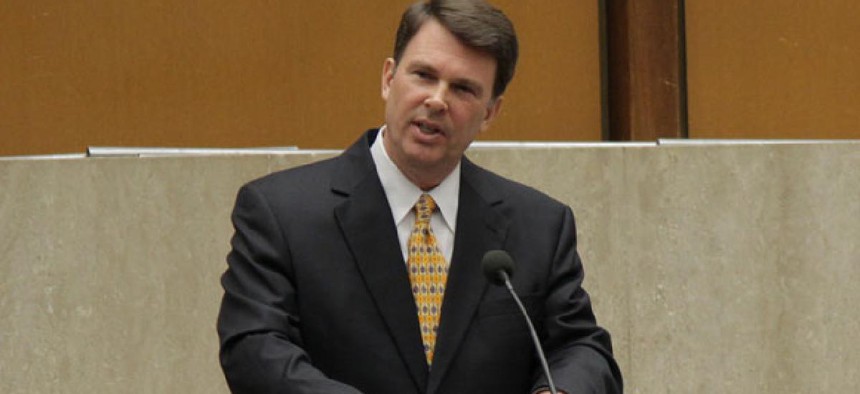
“To the extent that our universities can help by making sure our graduates are rich in these skills, the more effective our future government will be,” OPM's John Berry said. OPM file photo
Officials address the coming wave of federal retirements
Human capital planning more essential than ever, lawmakers told.
With nearly one-third of the federal workforce eligible to retire within the next four years, human capital planning is more essential than ever to the government, officials told lawmakers this week.
Filling skill gaps -- particularly those in cybersecurity and information technology -- could prove especially challenging, according to Government Accountability Office Comptroller General Gene Dodaro, who spoke Wednesday at a hearing of the Senate Homeland Security and Governmental Affairs’ Subcommittee on Oversight of Government Management, the Federal Workforce and the District of Columbia.
“I believe that we’re entering a crucial period now when all these issues are going to have to be dealt with concurrently, because they’re providing a confluence of significant challenges to the federal government,” he said.
Nearly 30 percent of workers on the federal payroll at the end of 2011 will be eligible to retire by 2016, including about 58 percent of the Senior Executive Service, according to Dodaro.
Retiring Sen. Daniel K. Akaka, D-Hawaii, additionally noted funding constraints. "Addressing these challenges during a time of declining agency budgets and an expected retirement wave requires the federal government to make the proper investments in its workforce and ensure that it is taking the steps necessary to retain its talent," a statement on his website said. It was Akaka’s final hearing of the subcommittee he has chaired since 2007.
Office of Personnel Management Director John Berry said OPM was looking to provide better ways for younger applicants to enter the workforce, while perhaps keeping senior-level employees on the payroll -- at least part time -- to help train new employees.
Berry said initiatives such as the Presidential Management Fellowship, the Recent Graduates Program and the Pathways Programs were essential for increasing the number of young people in public service. OPM wants to work with postsecondary institutions to educate students in the core competencies they will need in the private sector or for government service, he said.
“To the extent that our universities can help by making sure our graduates are rich in these skills, the more effective our future government will be,” Berry said.
Max Stier, president and CEO of the Partnership for Public Service, said only 13 percent of college students are aware of opportunities within the federal government and the lengthy process deters others from applying. In prepared testimony, Stier added the federal government’s hiring process should be a priority for the next president.
“We believe it is critical that the next administration, whether it is led by President Obama or Gov. Romney, sustain these efforts and make hiring reform a priority,” he said.
Berry added OPM was working with other departments to increase the number of veterans hired into federal jobs. He said government hiring managers would be “damned idiots” to ignore the extensive training that veterans have undertaken throughout their military careers and that they are a key part of the federal workforce.
“Bringing them in has been essential, and it has improved the quality of our workforce,” he said.







